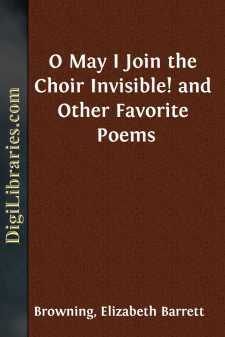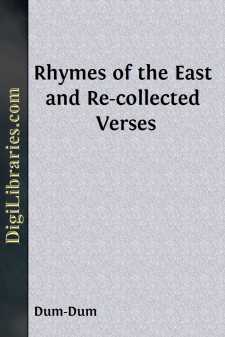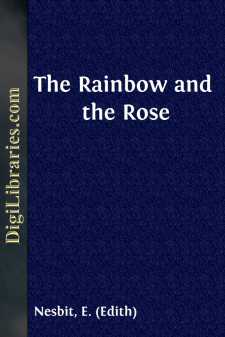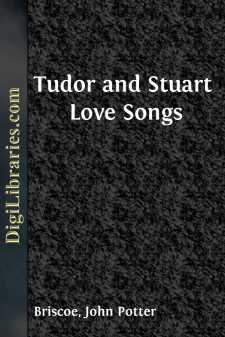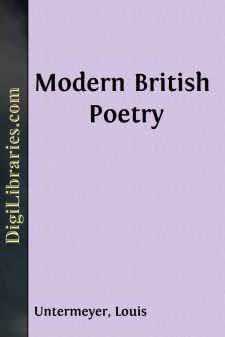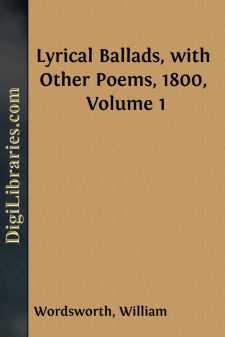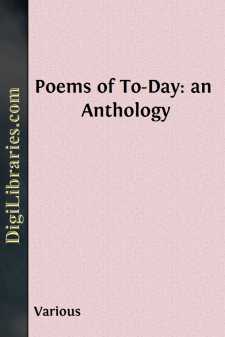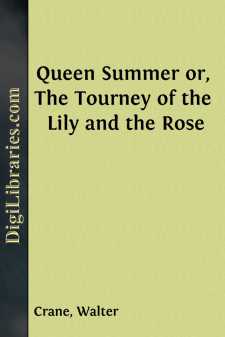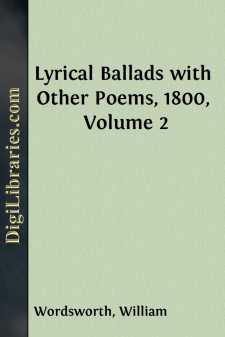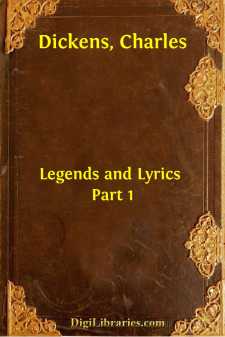Poetry
- American 96
- Ancient, Classical & Medieval 41
- Asian 15
- Australian & Oceanian 11
- Canadian 11
- Caribbean & Latin American 5
- Children's Poetry & Nursery rhymes 51
- Continental European 11
- English, Irish, Scottish, Welsh
- General 483
- Inspirational & Religious 7
- Middle Eastern 3
English, Irish, Scottish, Welsh Books
Sort by:
O MAY I JOIN THE CHOIR INVISIBLE! O may I join the choir invisibleOf those immortal dead who live againIn minds made better by their presence; liveIn pulses stirred to generosity,In deeds of daring rectitude, in scornOf miserable aims that end with self,In thoughts sublime that pierce the night like stars,And with their mild persistence urge men’s mindsTo vaster issues. So to live is heaven:To...
more...
by:
Dum-Dum
NOCTURNE WRITTEN IN AN INDIAN GARDEN'Where ignorance is bliss,'Tis folly to be wise.'The time-gun rolls his nerve-destroying bray;The toiling moon rides slowly o'er the trees;The weary diners cast their cares away,And seek the lawn for coolness and for ease.Now spreads the gathering stillness like a pall,And melancholy silence rules the scene,Save where the bugler sounds his homing...
more...
THE THINGS THAT MATTER. NOW that I've nearly done my days, And grown too stiff to sweep or sew, I sit and think, till I'm amaze, About what lots of things I know: Things as I've found out one by one— And when I'm fast down in the clay, My knowing things and how they're done Will all be lost and thrown away. There's things, I know, as...
more...
INTRODUCTION. The spirit of reform which was developed during the early part of the sixteenth century brought about a desire on the part of young men of means to travel on the continent of Europe. This was for the purpose of making themselves acquainted with the politics, social life, literature, art, science, and commerce of the various nations of the same, especially of France, Spain, and Italy....
more...
by:
Louis Untermeyer
INTRODUCTORY The New Influences and Tendencies Mere statistics are untrustworthy; dates are even less dependable. But, to avoid hairsplitting, what we call "modern" English literature may be said to date from about 1885. A few writers who are decidedly "of the period" are, as a matter of strict chronology, somewhat earlier. But the chief tendencies may be divided into seven periods....
more...
PREFACE. The First Volume of these Poems has already been submitted to general perusal. It was published, as an experiment which, I hoped, might be of some use to ascertain, how far, by fitting to metrical arrangement a selection of the real language of men in a state of vivid sensation, that sort of pleasure and that quantity of pleasure may be imparted, which a Poet may rationally endeavour to...
more...
by:
Various
1. ALL THAT'S PAST Very old are the woods; And the buds that break Out of the briar's boughs, When March winds wake, So old with their beauty are— Oh, no man knows Through what wild centuries Roves back the rose. Very old are the brooks; And the rills that rise Where snow sleeps cold beneath The azure skies Sing such a...
more...
by:
Walter Crane
Queen Summeror the Tourneyof the Lily & the Rosepenned & portrayedby Walter Crane When Summer on the earth was queenShe held her court in gardens greenFair hung with tapestry of leaves,Where threads of gold the sun enweavesWith checquered patterns on the floorOf velvet lawns the scythe smoothes o’er:Their waving fans the soft winds spreadEach way to cool Queen Summer’s head:The woodland...
more...
HART-LEAP WELL Hart-Leap Well is a small spring of water, about five miles from Richmond in Yorkshire, and near the side of the road which leads from Richmond to Askrigg. Its name is derived from a remarkable chase, the memory of which is preserved by the monuments spoken of in the second Part of the following Poem, which monuments do now exist as I have there described them. The Knight had ridden...
more...
by:
Charles Dickens
AN INTRODUCTION BY CHARLES DICKENS In the spring of the year 1853, I observed, as conductor of the weekly journal Household Words, a short poem among the proffered contributions, very different, as I thought, from the shoal of verses perpetually setting through the office of such a periodical, and possessing much more merit. Its authoress was quite unknown to me. She was one Miss Mary Berwick, whom...
more...


